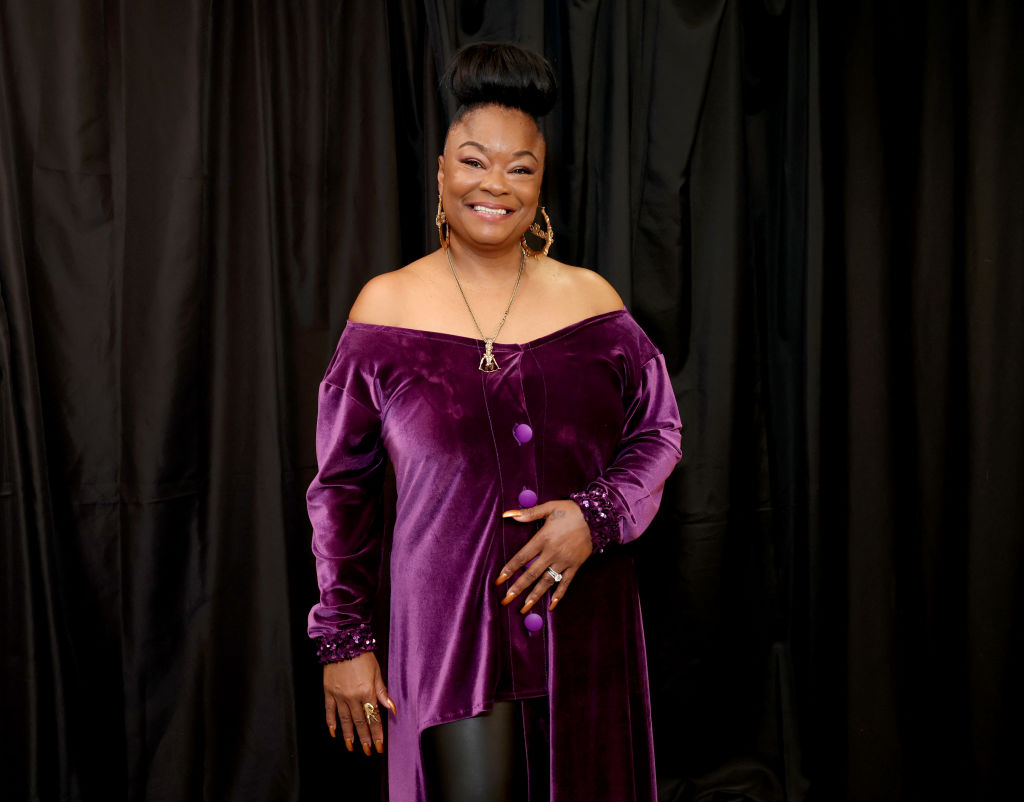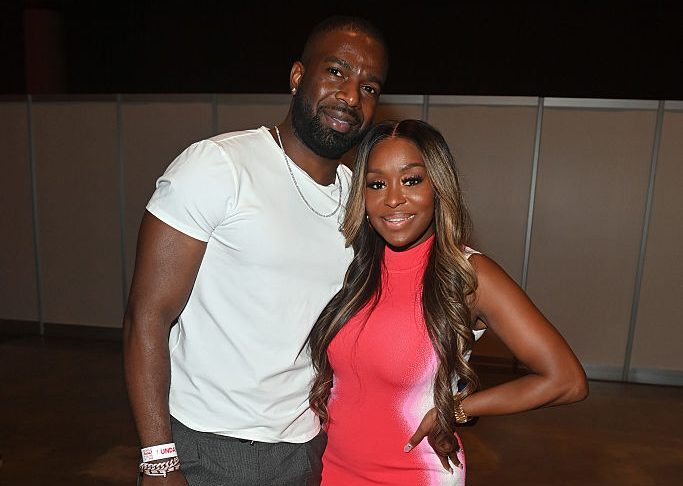Roxanne Shante’s name takes hip-hop heads back to the early days of hip-hop. As one of the first female rappers to make a significant impact on the genre, her rise to fame was a revolutionary show of resilience and authenticity. From her breakout moment as a 14-year-old with “Roxanne’s Revenge” to hosting Rock The Bells 2025, Shante has been a fixture in the culture. She remains an icon, not just in her music but in the way she has navigated the industry, faced down adversity, and used her platform to mentor others. Ahead of her role in this year’s Rock The Bells Festival, Shante sat down with MadameNoire for an exclusive interview. The conversation touched on her career, the hurdles female rappers face today, and the responsibility she feels to guide future generations.
Starting Her Journey
Roxanne Shante’s entry into the world of hip-hop was shaped by circumstances that were far different from the typical artist’s story. While many musicians start their careers out of passion, Shante’s was born from necessity. “For me, it’s always been a job,” Shante says. “It was always something that I used to support my family. Growing up with a different type of family, it was something I always did in order to provide for my family in difficult times.”
Unlike artists who pursue music as a hobby or as a way of expressing their passion, Shante’s journey was driven by the need to survive. While other teenagers may have been focused on having fun or expressing themselves through music, Shante had the weight of providing for her family on her shoulders. “So, I looked at hip-hop a little differently than everybody else,” she adds.
Her perspective on hip-hop was unique because it was tied to a deeper responsibility. It centered creating an opportunity for herself and her loved ones. That early understanding of the role music could play in her survival would lay the foundation for her entire career.
Confidence in the Spotlight
As a teenager in a male-dominated space, Shante’s confidence was key. Her rise to fame came quickly, but it was equally about talent and the way she carried herself. “When it comes to confidence, I had to grow up very fast,” Shante reflects. “Knowing that to be part of this male-dominated world… at that time, it was just hip-hop. It wasn’t considered entertainment. It wasn’t considered a genre of music.”
Being one of the few women in hip-hop at the time, Shante understood that in order to be taken seriously, she had to present herself with authority and strength. “You have to come in with a certain flair about you, besides just being a girl. You didn’t want them to look at you like just a girl,” she says.
Shante’s mother also played a key role in shaping her confidence. “I think that was the reason why I walked the way I walked and talked the way I talked,” Shante adds, speaking to the influence of growing up in a household with a very strong mother, an upbringing chronicled in Netflix’s 2017 biopic, Roxanne Roxanne.
The Hard Work Behind the Spotlight: Industry Criticism Today
As one of hip-hop’s pioneering women, Shante has witnessed the evolution of the genre from the inside out. Over the years, she has seen the rise of countless female artists, many of whom have faced their own set of challenges in the industry. One issue that remains ever-present is the criticism that female rappers face today, particularly the label of being “industry plants” or “undeserving” of their accolades. This has been a point of contention, with fans and critics alike questioning the legitimacy of female success stories, even when those stories are clearly rooted in hard work and dedication.
Shante recognizes this issue, pointing to the unfair scrutiny that today’s female artists face in the public eye. “People don’t understand how much hard work goes on behind the scenes,” Shante says, making a pointed reference to the kind of criticism that female rappers often face. “People just see their winnings. They just see it for that moment, but what they don’t see is the struggle that was before that.”
This criticism often manifests as accusations that artists like Doechii, who won a Grammy for Best Rap Album, are somehow “industry plants,” suggesting their success is manufactured and not the result of years of hard work. Shante, who has endured similar criticisms in her own career, is adamant that this view is short-sighted. She believes it’s rooted in a lack of understanding about the journey female artists go through before reaching success.
RELATED CONTENT: Doechii Wins Best Rap Album At 2025 Grammys — ‘God Told Me He Would Reward Me’
“They really judge you on just seeing like, ‘Okay, she just popped out,’” Shante continues. “But you didn’t know that she was already out here six years before that doing small venues, doing tours, accepting smaller amounts of money.” Shante makes it clear that today’s successful female rappers are not instant successes—they’ve been working in the trenches for years before achieving recognition.
The public’s perception of female success is often distorted. As Shante explains, many people think that once an artist reaches success, it’s an overnight phenomenon. “They always feel that once we hit success, it’s because it was overnight,” she says. “But they don’t think about the years and the days before that in order for them to see the success we have.”
For Shante, this misconception comes from the way female artists present themselves in the public eye. When women show up boldly and confidently, people are often taken aback, which leads to misjudgment and dismissal. “We present it like, ‘Okay, well, look, I’m here,’” Shante says. “We pop out so boldly that when you do that, people kind of…they’re taken aback by that.”



![‘Vanished’ Cast Talk Thriller At Celeb Premiere [Exclusive] ‘Vanished’ Cast Talk Thriller At Celeb Premiere [Exclusive]](https://bossip.com/wp-content/uploads/sites/28/2026/02/image-collage-13.jpg?quality=80&strip=all&w=1680&crop=0,0,100,960px)



